The big digital shift in the B2B sector in response to the coronavirus pandemic is here to stay and the ability to gain a competitive advantage will prove to be more vital than ever, according to McKinsey & Company.
“More than three quarters of buyers and sellers say they now prefer digital self-serve and remote human engagement over face-to-face interactions—a sentiment that has steadily intensified even after lockdowns have ended,” the global consulting firm wrote in a recent report.
The analysis shows that, apart from safety reasons, the convenience and speed of self-serve and remote interactions have nudged both buyers and sellers to embrace digital processes.
According to McKinsey, only about 20 percent of B2B buyers say they hope to return to in-person sales, even in sectors such as pharma and medical products where field-sales models have traditionally dominated.
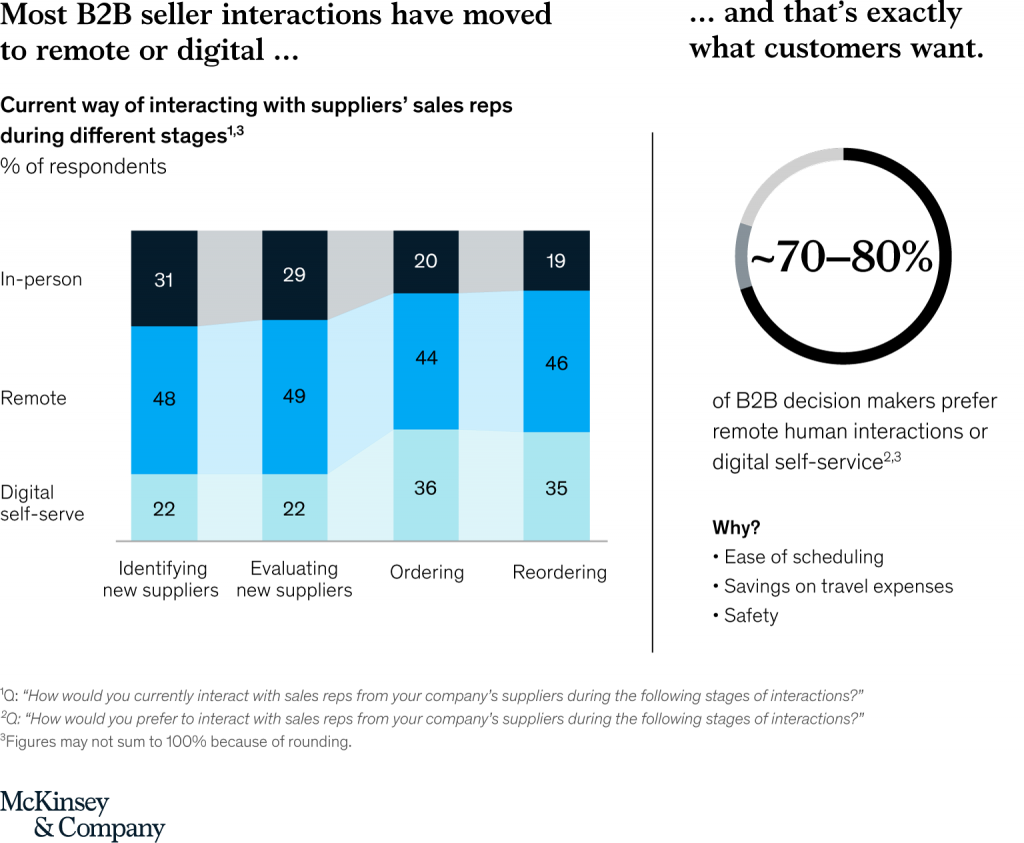
“The most notable sign that digital sales have come of age is the comfort B2B buyers display in making large new purchases and reorders online,” the report said, adding that e-commerce is no longer perceived as being mainly for smaller-ticket items and fast-moving parts.
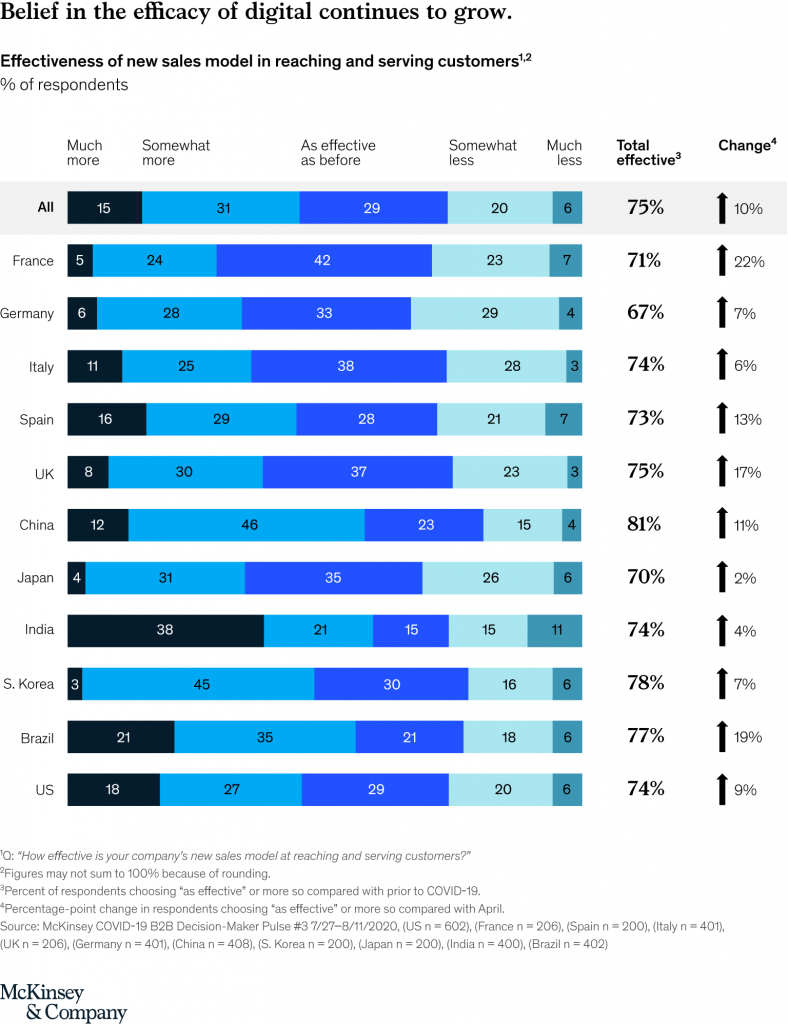
McKinsey survey shows that 70 percent of B2B decision-makers are open to making new, fully self-serve, or remote purchases worth more than $50,000. Twenty-seven percent would spend over $500,000.
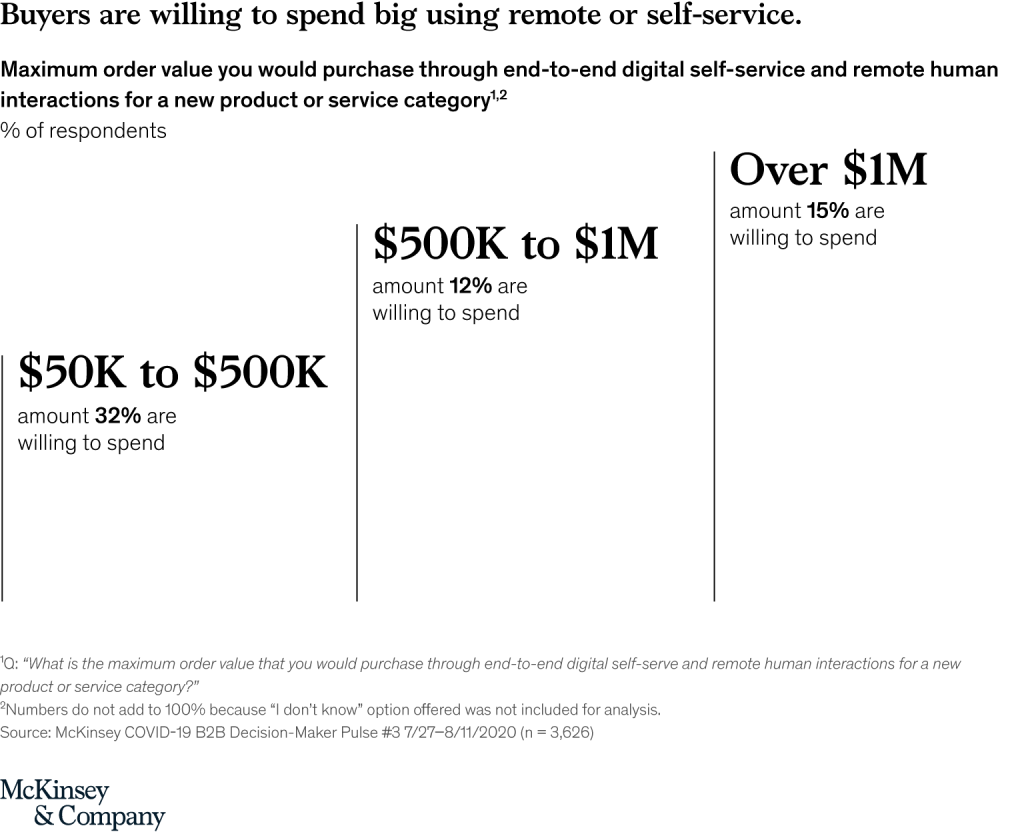
Two Main Channels
Another finding of the research is that video and live chat have emerged as the predominant channels for interacting and closing sales with B2B customers.
“The amount of revenue generated from video-related interactions has jumped by 69 percent since April 2020. Together, e-commerce and video conferencing now account for 43 percent of all B2B revenue, more than any other channel. Customers also made it clear that, given the choice, they prefer video to the phone.”
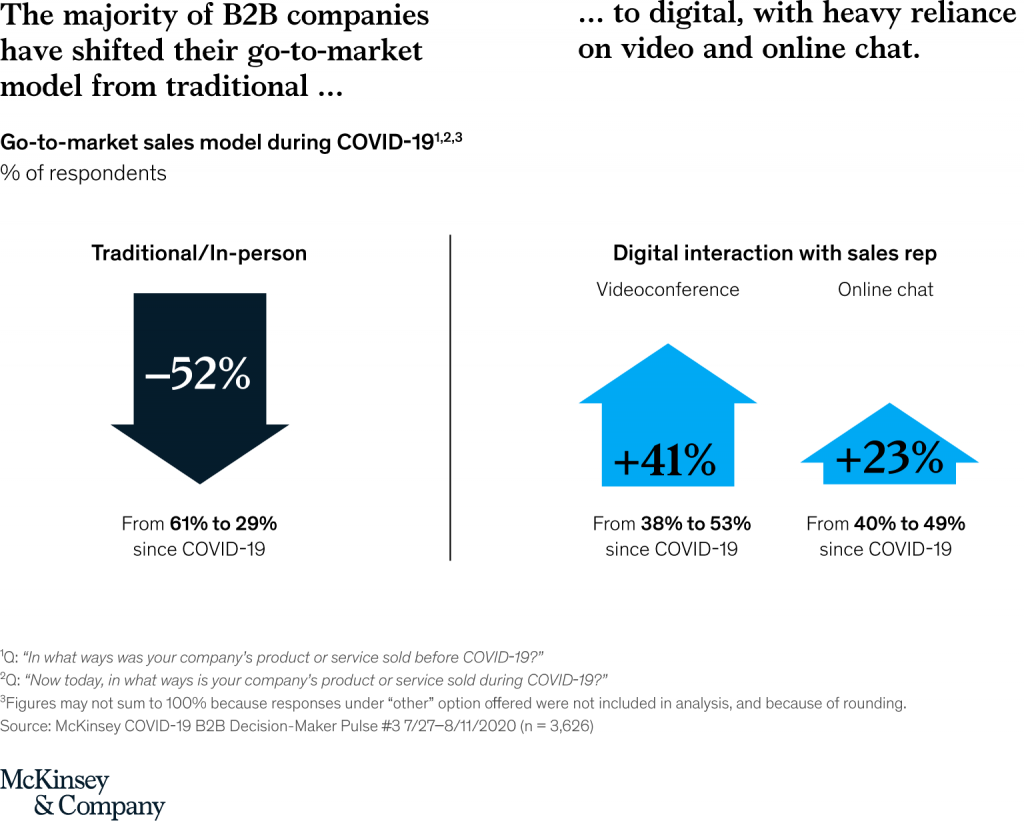
The consulting firm predicts that these pandemic-induced patterns will become permanent.
This prediction is supported by the fact that around nine in ten decision-makers say new commercial and go-to-market sales practices will be a fixture throughout 2021 and possibly beyond.
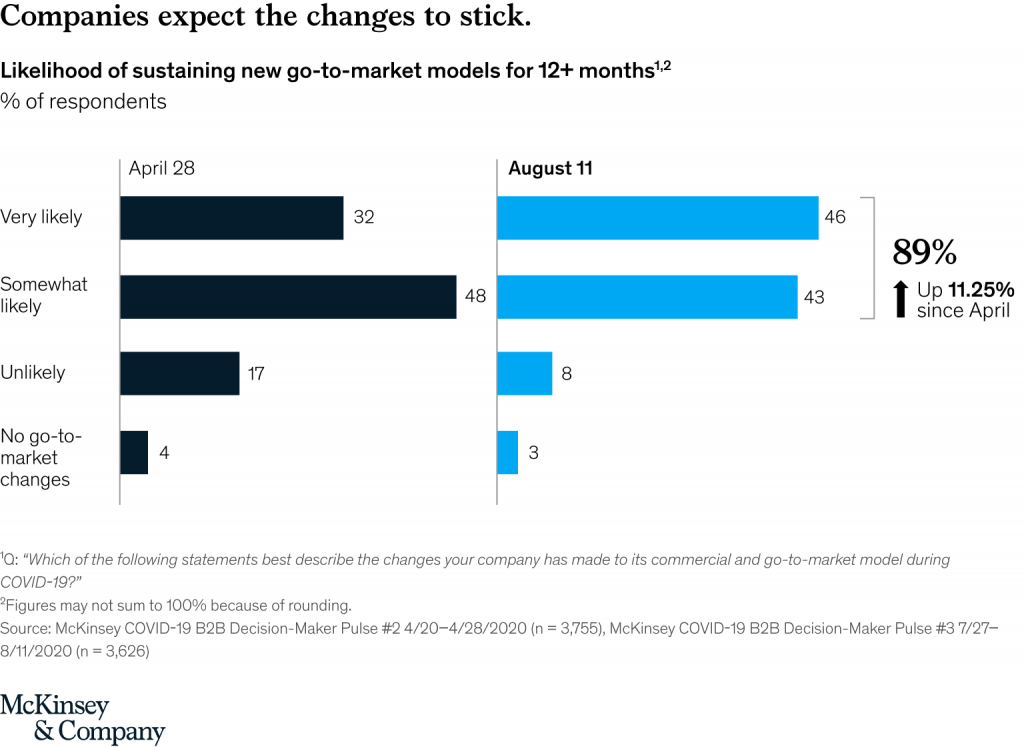
According to McKinsey, the shift to virtual sales can help sales organizations lower their cost per visit, extend their reach, and significantly improve sales effectiveness while creating a more delightful experience for customers.
“But while the opportunity is significant, so is the pressure to capitalize on it,” the report reads.
It says B2B leaders who are on the path of further digitizing their go-to-market models should derive a competitive advantage in the form of more—and more loyal—customers than their rivals.

